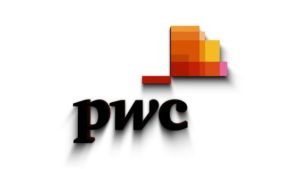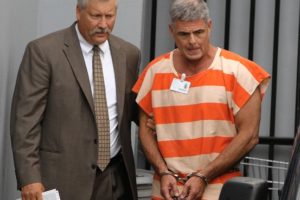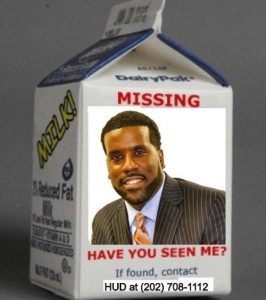Federal Judge Finds PricewaterhouseCoopers Negligence Led To The Collapse Of Taylor, Bean & Whitaker And Colonial Bank
 The story of the rise and collapse of Taylor, Bean & Whitaker is legendary throughout the finance world. Now it appears the negligence of the accounting powerhouse PricewaterhouseCoopers contributed to its demise.
The story of the rise and collapse of Taylor, Bean & Whitaker is legendary throughout the finance world. Now it appears the negligence of the accounting powerhouse PricewaterhouseCoopers contributed to its demise.
Taylor, Bean & Whitaker or TBW was the largest privately held mortgage company in the country. TBW originated, serviced and sold mortgages in pools to Freddie Mac.
TBW collapsed in spectacular fashion in 2009. SIGTARP discovered CEO Lee Farkas was cooking the books.
In August 2016, PricewaterhouseCoopers settled a $5.5 billion lawsuit that accused the firm of failing in its audit duties. Lawsuits allege the firm should have discovered the accounting malfeasance. Tha malfeasance led to the collapse of TBW and Colonial Bank. Colonial Bank funded TBW’s mortgages.
But that settlement did not end PricewaterhouseCoopers troubles as regulators are still cleaning up the mess.
A federal judge ruled that PricewaterhouseCoopers was “negligent” in its role as Colonial Bank’s auditor. The judge stated the auditing firm could have done more to prevent Colonial’s collapse.
The court also ruled that PricewaterhouseCoopers should have discovered the fraudulent activities at TBW and Colonial. The judge stated the auditing firm failed to review the underlying mortgage documents. PricewaterhouseCoopers elected not to.
The FDIC sued PricewaterhouseCoopers after Colonial Bank collapsed.
The FDIC claimed that Colonial’s failure cost the FDIC $5 billion. Thus, making it one of the largest bank failures in the country’s history.
PricewaterhouseCoopers is now waiting for the judge to decide the amount of the damages they will pay the FDIC.
PricewaterhouseCoopers Should Have Caught Lee Farkas’ Shell Game
 From 2002 to 2009, Farkas and his fellow conspirators swapped funds between accounts at Colonial Bank and Ocala Funding. Ocala Funding was a TBW subsidiary that also provided funding for TBW’s mortgages to cover constant overdrafts.
From 2002 to 2009, Farkas and his fellow conspirators swapped funds between accounts at Colonial Bank and Ocala Funding. Ocala Funding was a TBW subsidiary that also provided funding for TBW’s mortgages to cover constant overdrafts.
By December 2003, the rolling overdraft had grown to more than $120 million. Farkas and others soon realized swapping the funds back and forth were becoming too complex. Farkas and his executives began selling mortgages that didn’t exist to cover the shortages.
By 2009, Colonial Bank had more than $500 million in nonexistent loans on its books.
But the fraud at TBW went much further than that.
Farkas Shell Game Scheme Discovered By Feds When Colonial Bank Applied For A TARP Bailout
 TBW sold the majority of its loans to Fannie Mae. Fannie Mae purchased roughly 85% of TBW’s loans in 2002. TBW also had a servicing contract with Fannie Mae.
TBW sold the majority of its loans to Fannie Mae. Fannie Mae purchased roughly 85% of TBW’s loans in 2002. TBW also had a servicing contract with Fannie Mae.
Fannie Mae learned that Farkas had taken out $2 million in loans that were not actually backed by any eligible collateral. Fannie Mae immediately canceled its seller/servicer agreement with TBW.
Basically, Farkas planned to sell the eight fraudulent loans (which totaled $2 million) to Fannie to cover the money he needed pay Fannie for other non-compliant loans.
Fannie Mae discovered the fraud when Farkas was unable to make payments on the eight fraudulent loans. Fannie Mae did not communicate its findings to Freddie Mac, its regulator or other interested parties.
Consequently, Freddie considerably increased the volume of its business with TBW.
 Farkas’ scheme was finally discovered when Colonial applied for $553 million in bailouts from the Troubled Asset Relief Program.
Farkas’ scheme was finally discovered when Colonial applied for $553 million in bailouts from the Troubled Asset Relief Program.
TARP approved Colonial’s application for TARP funding. However, the government required it raise $300 million from outside investors.
According to a 2014 report from the FHFA-OIG, Farkas agreed to invest $150 million in the failing bank through TBW and help raise the additional $150 million.
SIGTARP soon figured out what Farkas was up to and stopped the Colonial Bank bailout.
Farkas eventually was found guilty on 14 counts of bank, wire and securities fraud and received a 30-year prison sentence.




Write A Comment